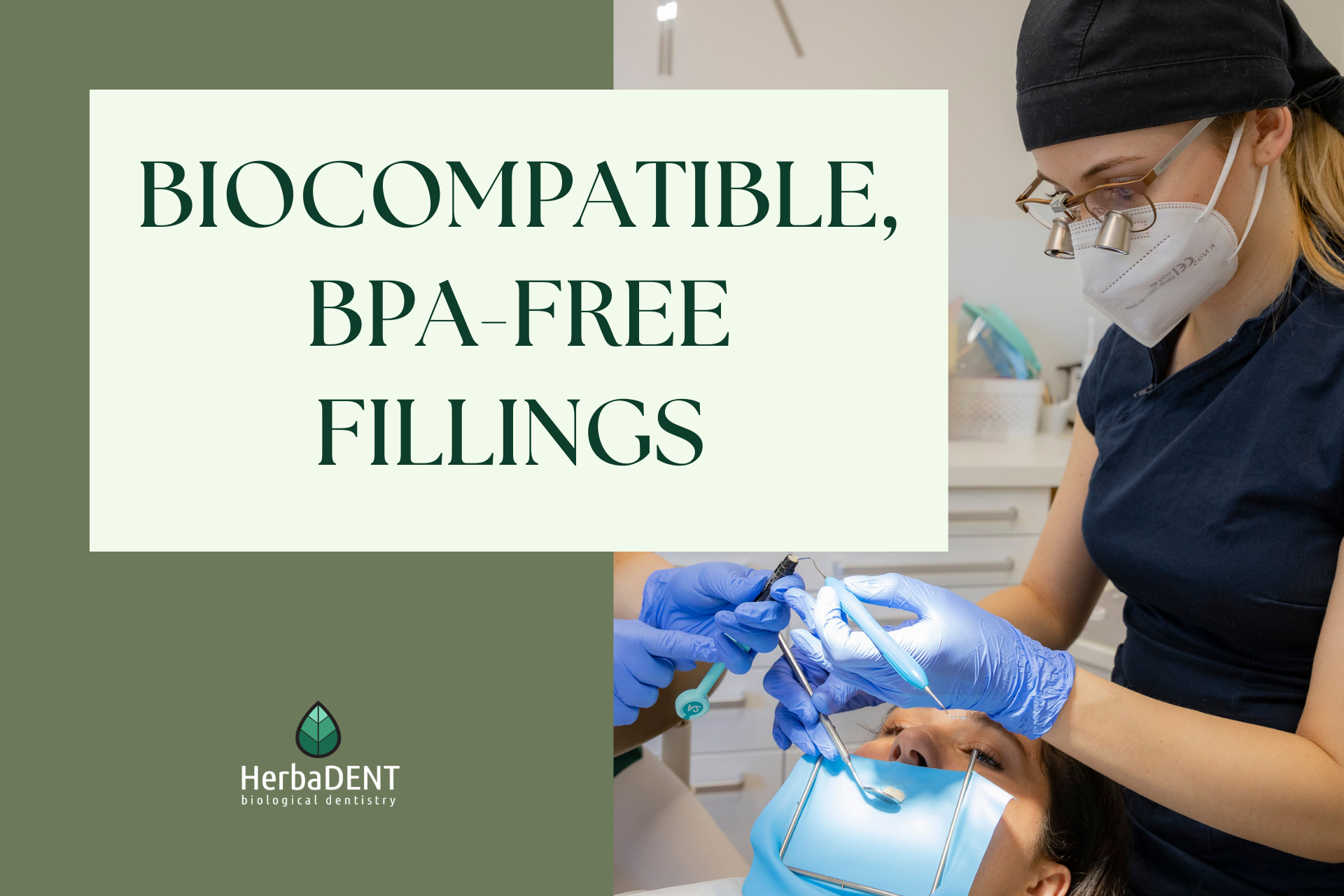Our clinic pays particular attention to working with BPA-free filling materials that are not harmful to health!
The use of biocompatible materials is one of the most important requirements in dentistry. The word biocompatible means that it does not interact with a living organism, does not exert any harmful effect on it. In light of this, it is understandable why biocompatibility is such a priority.
Our clinic pays special attention not to use substances that can be harmful to the body!
With the decline of amalgam, we could think that substances used in dentistry could no longer be considered harmful. However, the biocompatibility of today’s common plastic-based dental materials (e.g. fillings, cements) is far from perfect, according to recent research.
Plastic-based fillings as the enemy to biocompatibility
According to the latest research, the polymerization rate of plastic-based dental materials (composites, cements) is only 38-65%, that is, almost half of the constituents remain in their original state. Although this does not affect their physical properties (so excellent fillings can be made of them), the problem lies in that since after polymerization almost half of the organic molecules (BisGMA, TEGDMA, HEMA) remains in an unbound state, they can eventually reach the oral cavity.
Toxic effect
Since 2012, the number of studies showing that after making a composite filling, BPA (bisphenol A) and its derivatives appear in saliva and even urine has been increasing rapidly. Most of these molecules are broken down by the enzymes of saliva into other smaller molecules that can be toxic to the body or are potential carcinogens. The effects extend to foetuses, children, and adults in the form of various metabolic diseases and developmental disorders.
Today, in 87.8% of plastic-based dental materials sold in Europe the constituents, i.e. monomers are BisGMA, TEGDMA and HEMA. Thus, it can be said that fillings today pose at least as much — if not greater — risk to the health of patients as in the early days of the amalgam.
BisGMA (Bisphenol A diglycidyl methacrylate)
It is widely used in the manufacture of plastic-based dental fillings and cements synthesized from bisphenol A (BPA) and glycidyl methacrylate. During its hydrolysis, the molecule breaks down and these constituents are released again.
Possible effects of BPA on reproductive function:
- feminization of male embryos
- testicular atrophy
- enlargement of the prostate
- thyroid developmental disorder
- also affects the system of sex hormones
- defective spermatogenesis in adult men (decrease in sperm count, motility)
- decreased libido, erection problems
Our clinic pays special attention to working with BPA-free fillings that are not harmful to health!

